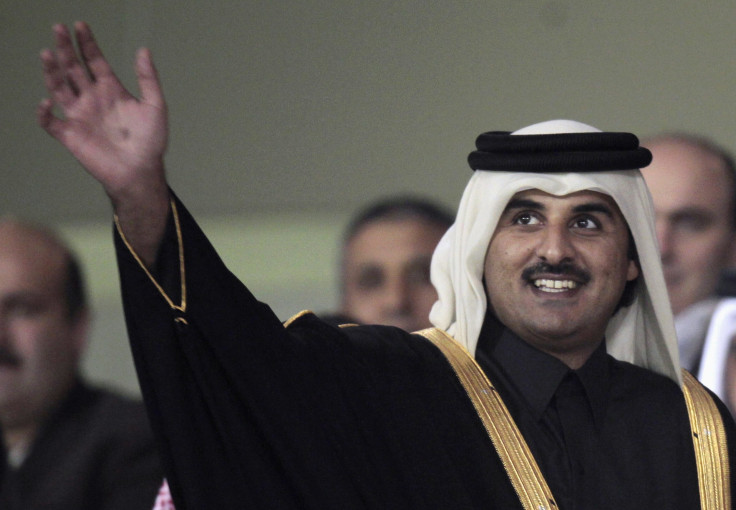Meet Qatar’s Young New Ruler: Sheikh Tamim Becomes Emir Of Powerful, Oil-Rich Gulf State
The emir of Qatar has formally announced a handoff of power to his son, marking an unusual transfer of power in the Persian Gulf region.
Sheikh Hamad bin Khalifa al-Thani has bestowed his old position upon the former Crown Prince Sheikh Tamim bin Hamad al-Thani. The choice comes as no surprise; the al-Thani family has ruled Qatar since the 1800s, and Sheikh Tamim was the expected successor. What is unusual is the timing; in Qatar and across the Gulf, dynastic rulers often retain their posts until death.
At 61, Sheikh Hamad was already the youngest ruler of any Gulf state. His son becomes emir at the age of 33 -- about half the age of the rulers of neighboring countries.

Despite his youth, Sheikh Tamim is not expected to introduce any bold new policies. Qatar is already more liberal than its neighbors; the retiring emir implemented some cautious reforms during his 18 years in power, including loosening restrictions on the press and giving women the right to vote.
But the leadership change is significant since this small country plays an outsized role in international diplomacy. Qatar is rich in hydrocarbons, and officials have used this wealth to turn the country into a hub for business, diplomacy and media. The country of 1.9 million, which is home to more foreigners than native Qataris, boasts a GDP per capita of $92,500 -- about twice as much as the United States. It is also the headquarters of the international media outlet Al Jazeera, and a frequent host of international talks in Doha. Most recently, diplomats met there this weekend to discuss the Syrian conflict. Qatar has lent its strength and wealth to the Syrian rebel movement -- as it did in Libya -- funding shipments of arms long before the United States agreed to do the same.
Installing a young new face in the country’s top leadership position could signify an attempt to remain modern and relatively progressive. But Qatar still struggles with some serious problems; the government, despite hosting Al Jazeera, enforces restrictions on local media, fails to protect the rights of migrant workers, and has a long way to go in terms of women’s rights. Though Sheikh Tamim has pursued initiatives that would bolster Qatar’s presence on the global stage -- he led Qatar’s efforts to host the 2020 Olympics and the 2022 World Cup, the latter of which was granted -- there are no indications that he plans to tackle the country’s most glaring human rights issues.
One immediate result of the power transfer could be the departure of Sheikh Hamad bin Jassim, who serves as both prime minister and foreign minister and is considered one of the most powerful figures. Sheikh Hamad bin Jassim also runs the Qatar Investment Authority, where he presides over investments of the country’s wealth. He is likely to retain that position even if he steps down as prime minister.
In short, the new emir does not herald a real changing of the guard for Qatar. Those in power, either in business or in the government, are likely to retain their privileged positions.
But if all goes according to schedule, the country will see one major change later this year: a public election to fill 30 out of 45 seats in an advisory body called the Consultative Assembly, which will have limited abilities to steer policy and check dynastic powers.
© Copyright IBTimes 2024. All rights reserved.












